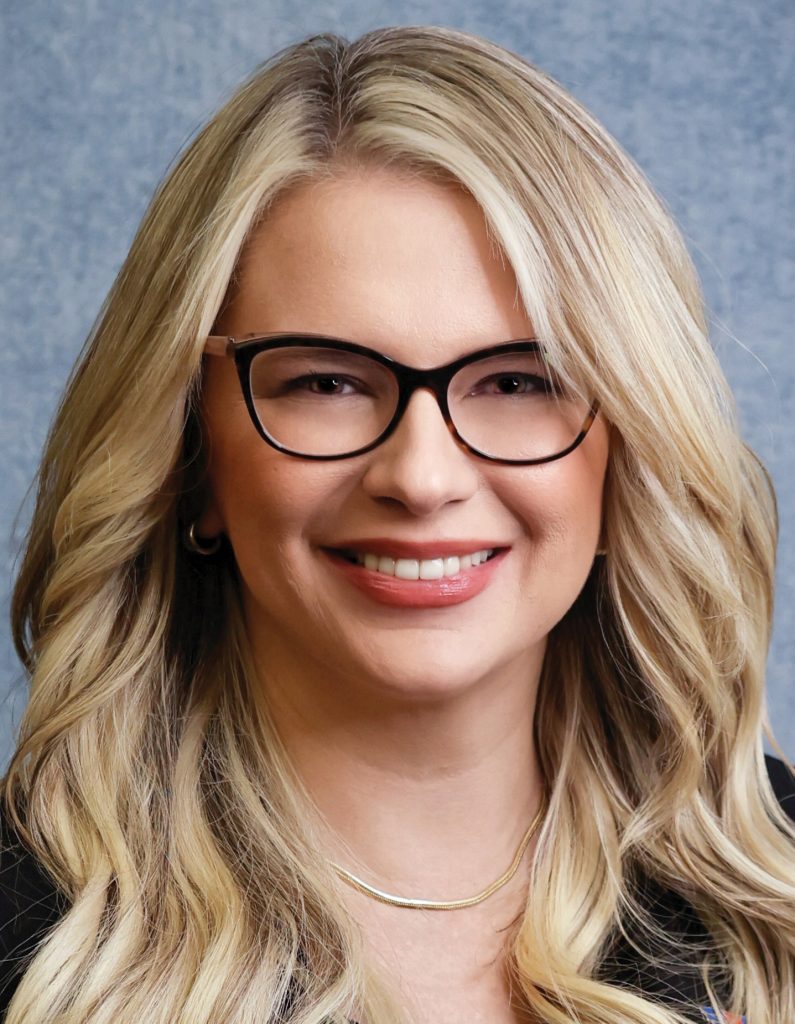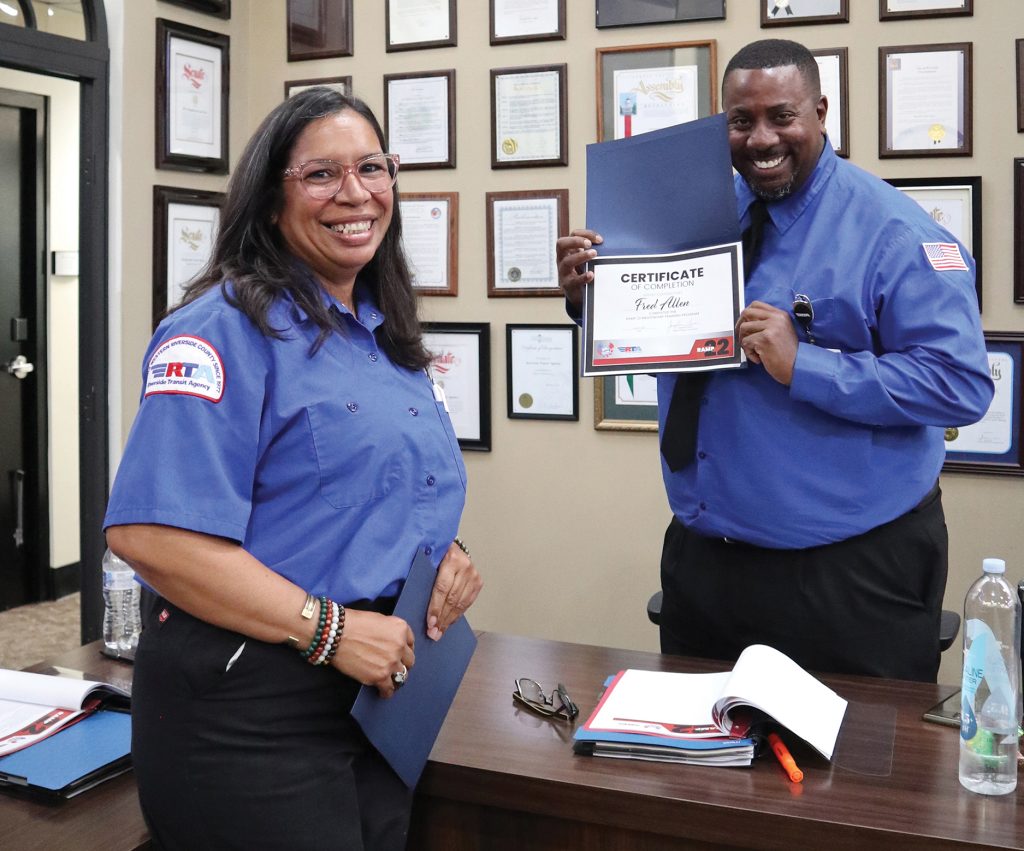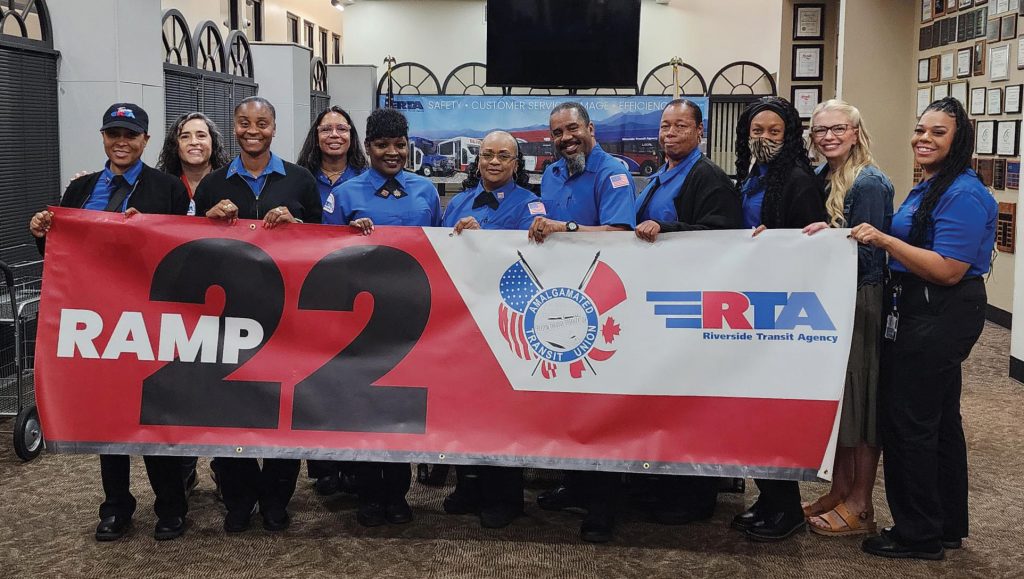Finding Common Ground: Removing Barriers Between Management and Labor
10/2/2024
BY KRISTIN WARSINSKI
Chief Executive Officer
Riverside Transit Agency
Riverside, CA

Riverside Transit Agency (RTA), like so many organizations across the globe, faces big challenges in a post-pandemic world. The pandemic changed us as individuals and as an agency. We saw that a gap had widened between union labor and administration as we entered a new normal.
Coach operators and maintenance workers had been on the front lines of the pandemic, while administrative staff worked mostly from home. There was a feeling of, “We had to be here—you didn’t.”
We needed to get back to our roots and reimagine our agency culture. And we needed to find common ground and do it in collaboration with our union workers, members of Amalgamated Transit Union (ATU), Local 1277.
Just like everyone else, we had issues with hiring and retention due to the disruption in the labor market. In September 2023, we actually had to remove select weekend service due to our operator shortages. Something had to be done.
The Importance of Workplace Mentorship

Our agency made a big hiring push, but we knew we needed to do more to attract talented workers and keep them. So, under the guidance and support of our 22 board members, we partnered with the union to create a mentorship program, which we named the RTA and ATU Mentorship Program 2022, or RAMP 22. Funded through state grants, RAMP 22 is a true labor/management partnership founded with help from California Transit Works! (CTW), a California consortium of transit agencies, transit unions, and colleges focused on workforce development. CTW is one of the High Road Training Partnerships (HRTPs) of the California Workforce Development Board (CWDB).
RAMP 22 aims to make new coach operators and mechanics feel welcome, supported, and part of the family. Being in a new professional environment can be stressful. New employees need to know that others felt the same way at first, and experienced the same things they are going through. Operators and mechanics need real-life tips to help them with their day-to-day challenges.
One of the unintended, but positive consequences of working together in creating this program is it helped us communicate more effectively with each other. We had to set our individual differences aside for the greater good.
Another aspect of the RAMP 22 program we are currently exploring is retraining and reskilling our workforce as we anticipate new technologies. Like other transit agencies, RTA is investing in zero-emission technologies, such as hydrogen fuel cell electric buses. Our board of directors recently authorized our agency to issue a contract for the design and construction of a hydrogen fueling station and the design of a second station. This fall, we expect to order our first hydrogen fuel cell buses.

As RTA moves toward new technologies, we want to make sure our employees are trained and ready. It’s important that staff don’t feel left behind. To help us achieve this, we carved out five percent of the last few competitive federal grants we’ve received to pay for training and equipment.
As technology continues to be part of transit’s future, the better your relationship is with the union and your employees, the more trust that you have and the more likely you can implement those new technologies with employee support.
A second tier of our mentorship program is an apprenticeship program that we are working to create with one of the local colleges to educate our staff on new technologies. We hope it will also get the younger generation excited about a career in transit.
Employee Engagement
We are also focusing on our workforce engagement efforts. As part of these culture changes, we are rolling out a new set of core values. We introduced a list of potential core values and let our employees vote on them, something RTA has not done before. The next step is to get everyone’s buy-in and train them on the meaning of these values.
Leadership and the union are never going to get along 100 percent of the time. There are going to be things that we don’t agree on, but with mutual respect, you can build a good partnership. I am thankful for the partnership we have with ATU Local 1277, and the great strides we have made toward building a better future for all employees at RTA.
You can get a lot done when you find common ground.